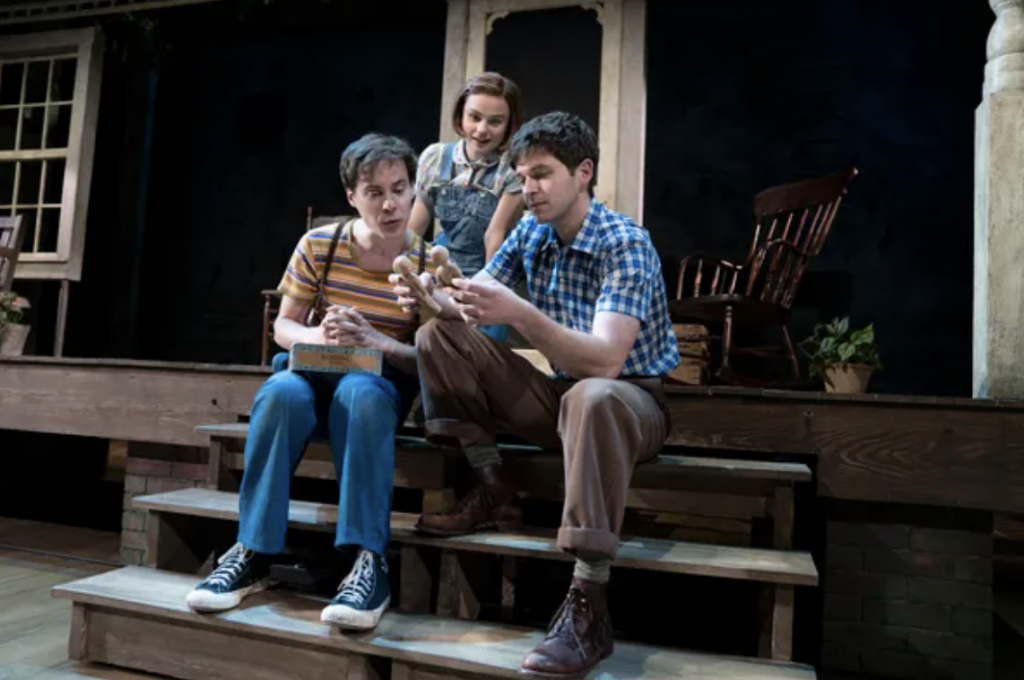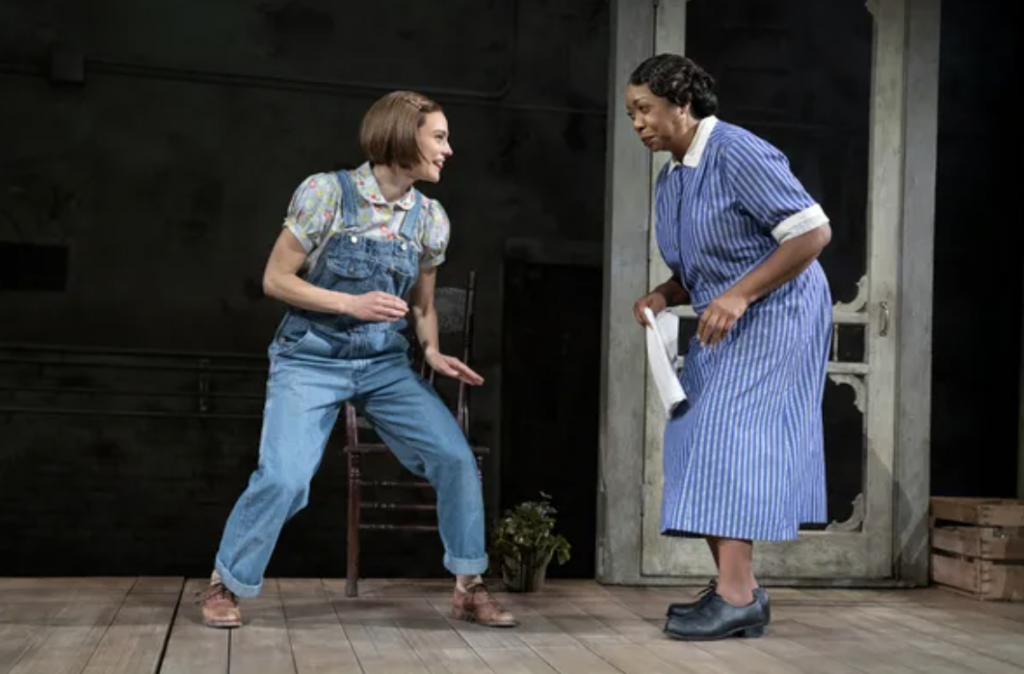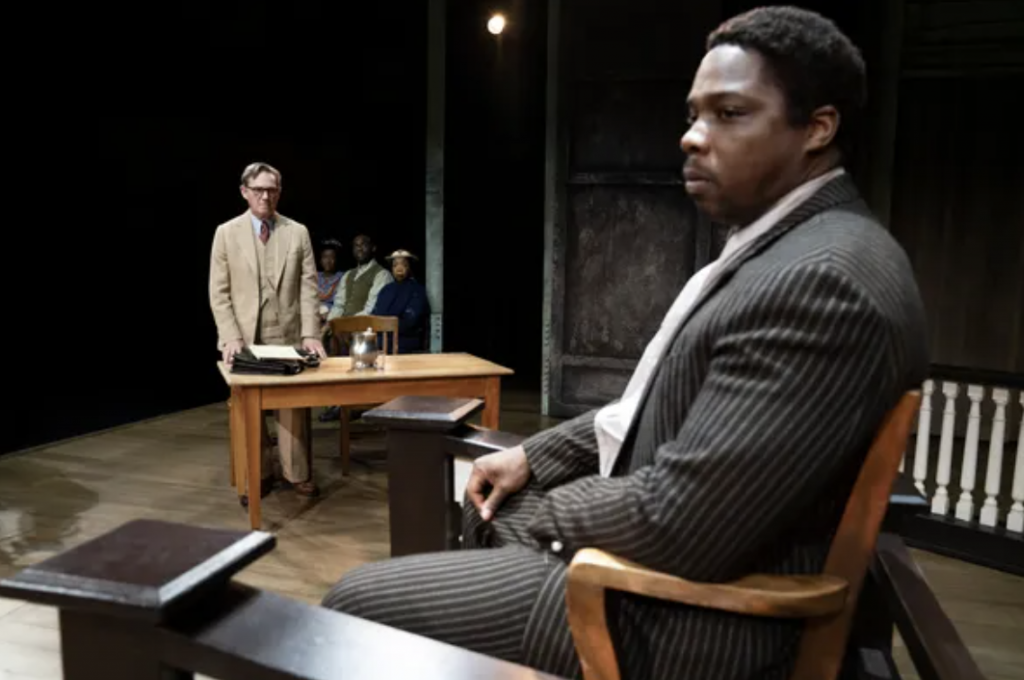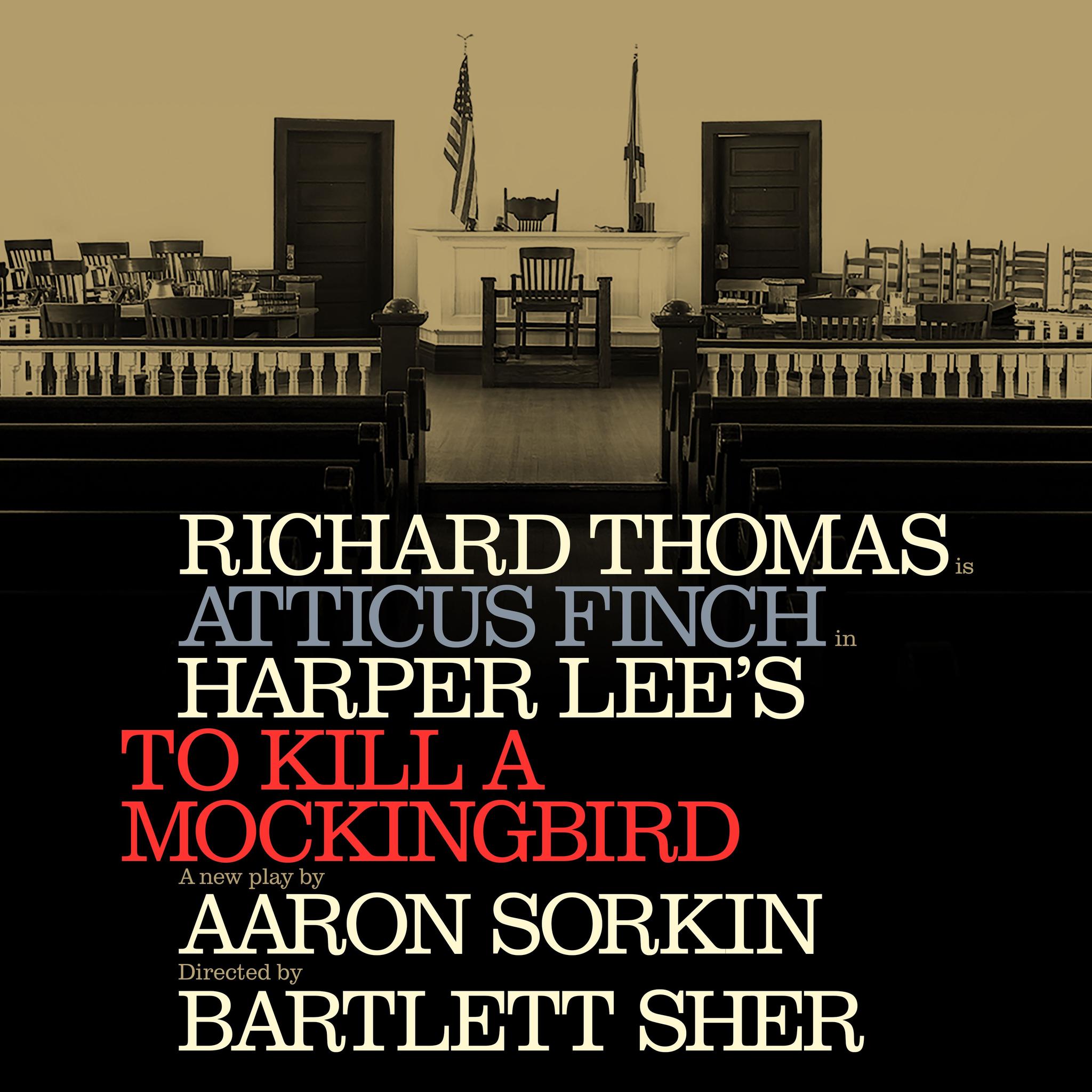By Jason and Alisha Hagey
Words fail to describe the Broadway Across America production of Harper Lee’s To Kill a Mockingbird (TKAM) at the Eccles Theater in downtown Salt Lake City, Utah. Marvelous. Heartbreaking. Powerful. Beautiful. Inspiring. Terrifying. Timely. Riveting. Exceptional. Perfect. Each word falls short of encapsulating the production’s incredible balance of intimacy, grandeur, and poignancy. The play provides a stark, pointed look into America’s history of race, morality, injustice, and classism through the lens of a courtroom in a 1930s small town.
Set in Maycomb, Alabama, in 1934, Tom Robinson is a wrongly accused African American man on trial for the assault of a white woman. Taking up his defense is Atticus Finch, an idealist lawyer. The story is told through the narration of Finch’s children, Scout and Jem, and their friend Dill. How can one text cover so much ground? TKAM is a coming-of-age story for both Jem and Scout. It is also a juxtaposition of good and evil and how they coexist. For what is really a drama dealing with the consequences of racism and prejudice, it finds its lighter moments for all of us to breathe. We laugh together, and then the breath is taken away in the following moment by small revelations. Each character is nuanced. Each performance by the actors is equally as dynamic as the script.
You may have read Harper Lee’s Pulitzer Prize-winning, haunting book somewhere between seventh and ninth grade. In it, Lee captures something quintessential about America, yesterday and today, that reveals hope while not shying away from hideousness. The characters are quirky, even eccentric, and we see the breadth of humanity stretched between courage and cowardice. It is a simple story with great complexity because human beings are not simple.
If you have not read the book, perhaps you have seen the beloved 1962 film directed by Robert Mulligan, penned by Horton Foote (who won the Oscar for his work on the film), and starring Gregory Peck (who won the Oscar for Best Actor that year) as Atticus Finch. The film is probably as beloved as the book.
The famed screenwriter Aaron Sorkin (Playwright) is well-known for his Oscar-winning adapted screenplay of The Social Network, as playwright and screenwriter for A Few Good Men, and his being the showrunner of the much-lauded The West Wing. He is no stranger to tackling socially charged topics and is fearless in expressing these topics both head-on and with great storytelling. With his telling of Harper Lee’s classic, Sorkin challenges the notion of the Atticus Finch “Great White Savior” narrative that Gregory Peck made famous while giving greater weight to Tom Robinson and Finch’s maid, Calpurnia. Sorkin decides to question the film’s nostalgia and examine the book’s themes in his play.
Bringing the tale to life required the adept and acclaimed directorial hand of Bartlett Sher (Director). Sher’s interwoven narrative of cross-flowing flashbacks and investigations of relationships deftly captures the humorous with the profound. His transitions give us more glimpses into character and relationships as we see Scout, Jem, and Dill being children and narrators.

Steven Lee Johnson (‘Dill Harris’), Melanie Moore (‘Scout Finch’) and Justin Mark (‘Jem Finch’). Photo by Julieta Cervantes
Sher could not have done this production without the amazing talents of his design staff. Miriam Buether’s (Scenic Design) fluid set creates a constantly moving world that comes to life almost as much as the actors who inhabit that world. With over 200 Broadway and feature film design credits, Ann Roth’s (Costume Design) costuming is – as always – perfect for each character and reflects the setting without attracting undo attention. While more ethereal, Jennifer Tipton’s (Lighting Design) and Scott Lehrer’s (Sound Design) contributions give breath to the production and beautifully capture each moment of the play.

Melanie Moore (‘Scout Finch’) and Jacqueline Williams (‘Calpurnia’). Photo by Julieta Cervantes
Headlining the production is the Emmy award-winning Richard Thomas (Atticus Finch). Thomas tackles a hefty role. In the past, Finch was given the hero role, but this Finch requires a flawed human rather than being the one source of truth and morality. Producing that performance can be daunting. Thomas plays the role with an uncanny naturalness. Between his idealism, the belief that every human being is worth respecting, and his circumstances challenging those beliefs, Thomas becomes real instead of a symbol. He struggles as a father, as a lawyer, and as a member of his community. He is less of a hero and becomes a stand-in for us as the audience. Thomas is magnificent.

Melanie Moore (‘Scout Finch’) and Richard Thomas (‘Atticus Finch’). Photo by Julieta Cervantes
Framing everything are the three children, played by Melanie Moore (Scout Finch), Justin Mark (Jem Finch), and Steven Lee Johnson (Dill Harris). Moore is lively and inviting. Her performance reflects the youthfulness of Scout while projecting a thoughtfulness foretelling her future adult self. Mark’s earnestness as Jem, his growing beyond naivete throughout the course of the narrative, is commendable and not easily attained. Elrod stands out as Dill. The subtlety of his multifaceted portrayal is both entertaining and enlightening. Easily, Dill could be written off as a sidekick character, but in the end, Elrod takes him to a level of importance as a throughline for the show.

Yaegel T. Welch (Tom Robinson) and Jacqueline Williams (Calpurnia) are perhaps the most difficult characters to portray because they require transcending stereotypes while personifying the African American experience, then and now. Welch and Williams are a force. They stand out for the nuance they add, whether they have spoken dialogue in those moments. Each is sympathetic, strong, and just as powerful as the portrayal of Atticus (which is a remarkable feat since he is the protagonist). The command of the stage makes them something truly special.

Richard Thomas (‘Atticus Finch’), Yaegel T. Welch (‘Tom Robinson’). Photo by Julieta Cervantes
It isn’t often that a straight play (a non-musical) tours with Broadway Across America. Spectators could debate whether the star power of Sorkin’s name makes To Kill a Mockingbird possible to tour for those of us who couldn’t make it to New York in 2018/2019. One could also say that the star power of all the creatives sells this to subscribers. Yes, the cast and crew are stupendous. Yet, I think it is because of the immortal genius of Harper Lee and the timeliness of the narrative that makes To Kill a Mockingbird both relevant and remarkable. What does the present day have in common with 1934 Alabama? Far too much. Truly, we should “all rise,” go see this amazing production, and remember that “joy cometh in the morning.”
Zions Bank/Broadway at the Eccles presents To Kill a Mockingbird by Aaron Sorkin
George S. and Dolores Dore Eccles Theater, 131 Main Street, Salt Lake City, Utah
September 6-11, 2022, times vary
Eccles Theater Website
Purchase Tickets at ArtTix.org
Eccles Theater Facebook Page
Photos by Julieta Cervantes


0 Comments